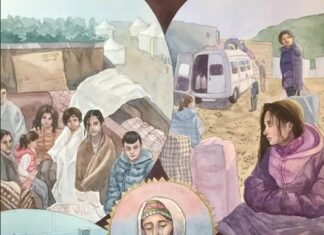By Philippe Raffi Kalfayan
Observers were surprised when President Erdogan questioned the fair application of the Lausanne Treaty recently. In a visit to Athens in December, he asked for its revision, claiming that “the Muslim minorities on the Greek border of Western Thrace were not able to choose their own chief mufti, while the Christian communities in Turkey enjoyed greater freedom when choosing their Patriarch.” Previously, he had declared that Lausanne was not such a great victory, because Turkey had to give away some [now Greek] islands. Meanwhile, he praised the Lausanne Treaty as the result of the first victory for the independence of Turkey.
The reaction of the CHP [Republican Kemalist Party] was prompt, condemning those comments, recalling that the Lausanne Treaty is the title deed of the Republic of Turkey.
We should take a closer look at that treaty, especially the conditions in which the treaty was concluded, its consequences for Armenians inside or outside the country, and how it has been applied so far by Turkey.
A Diplomatic and Moral Defeat of Western Allies; A Legal Nightmare for Armenians
In the Treaty of Sèvres, Turkey recognized an independent Armenia. It admitted to the massacres and agreed to deliver those responsible for the massacres committed on Turkish soil to the Allied Powers with the latter having the authority to establish tribunals and conduct criminal trials. Further, Turkey agreed to a new system of Capitulations, which protected the Allied Powers and their nationals from Turkish courts. The Treaty of Sèvres also established duties on Turkey to protect minorities. The Allied Powers signing the Treaty of Sèvres were the British Empire, France, Italy and Japan. Armenia was among the Principal Allied Powers and could present its memorandums and claims.










